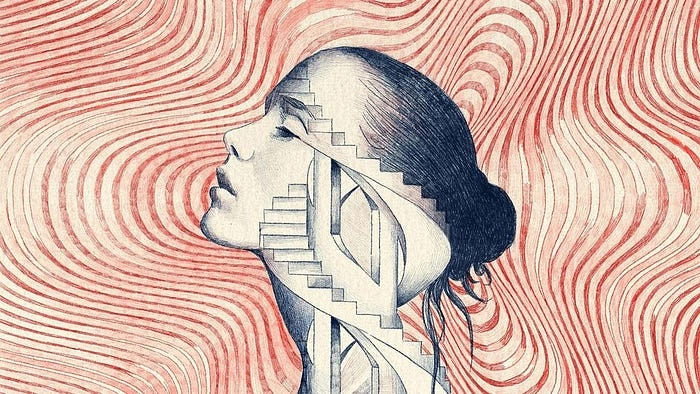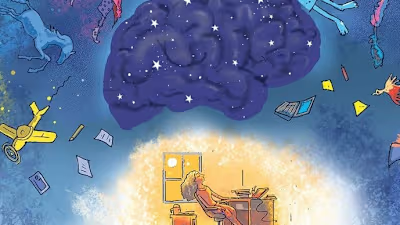Is Hypnosis real? Can anyone be pulled under hypnosis?

My first exposure to hypnosis was as a university student when I visited NCA. I attended an event on campus where they had invited a hypnotist, the auditorium was filled with students and faculty all of them extremely curious to witness a real-life hypnotism experience rather than what we usually see on TVs. Many weird behaviors occurred on that stage. Some started meowing like cats some were holding out their hands like they holding something very heaving or some even stood on their chairs with their hands in the air. All of these behaviors were controlled by the hypnotist but the entire time I was wondering ‘is this really real or just a bunch of students trying to give the audience a good time?’ These strange behaviors are frequently seen during stage hypnosis. It is a common belief that Stage hypnosis and hypnotherapy are not the same thing; stage hypnosis is more for entertainment, whereas hypnotherapy has been used to help people with a variety of problems as it often said but the question still remains: Is it real?
After some research and digging I eventually came to the point that the common misconceptions regarding hypnosis is very much exaggerated and more or less just some. Hypnosis does not give people superhuman strength (though it may help them to use their full strength, which they chose not to use outside of the hypnosis context). Hypnosis also does not lead to enhanced memory, though it may lead to an increased risk in producing false memories; this occurs due to the suggestible nature of hypnosis. Hypnosis does not regress people back to the mental state they had as children; although people may (upon request) act like children in some ways, they do and say things that children wouldn’t. Some people might think of a psychotherapist swinging a pocket watch or that anyone can get hypnotized at any time and even forcefully when in reality hypnosis is a heightened state of concentration and focused attention. Guided by a trained and certified hypnotist or hypnotherapist who guides you into a deep state of concentration and relaxation with verbal cues, repetitions and imagery. When you’re under hypnosis, this intense level of concentration and focus allows you to ignore minimal distractions and be more open to guided suggestions to make changes to improve your health, allows you to make changes in your perceptions, sensations, emotions, memories, thoughts or behaviors.
There is also a key factor that not everyone can be pulled under hypnosis and never forcefully. There are numerous definitions of hypnosis, which vary greatly between hypnotists and researchers. It is defined in this article as a state of consciousness in which a person is highly suggestible (Ciccarelli and White 2020). Expectations are an excellent predictor of suggestibility. To begin, the hypnotist instructs the subject to concentrate on what is being said, to relax, to be open to suggestions, and to use their vivid imagination. These specific steps are not included in all hypnotic inductions, but they may occur to some extent in a variety of procedures. The degree to which a person is hypnotically suggestible is referred to as hypnotic suggestibility. Various tests have been developed to determine whether or not a person is a good hypnotic subject. A hypnotic susceptibility scale would include things such as responding to some suggestions such as: being instructed to close your eyes and then being unable to open them; and being told that your arm is locked in one place and then not being able to move the arm (Ciccarelli and White 2020). Those following these instructions would be rated high in suggestibility. When stage hypnotists select people from the audience for their stage show, they often like to get an idea of the volunteers’ level of hypnotic suggestibility, so they make brief instructions and evaluate their responses. Those who are chosen to participate in the show have high suggestibility.
Hypnosis does not give people superhuman strength (though it may help them to use their full strength, which they chose not to use outside of the hypnosis context).
Is everyone equally prone to hypnosis?
Screening of hundreds and hundreds of fully Cooperative Stanford students were done and those were picked who on formal testing were very high and very low in hypnotizability. They were put in the scanner, the ‘highs’ and the ‘lows’ they were given hypnotic instructions and it was observed what happens in the brains only of the high hypnotizable and only when they’re in the hypnotic conditions and then it was observed what was going on in their brain. Electroencephalogram studies (measuring brain waves) confirm that people are not asleep during hypnosis, though they may be drowsy. Under hypnosis, people often show heightened activity in theta bands (indicating four to seven spikes or cycles per second). A popular view is that people being hypnotized are automatons, completely under control of the hypnotist; this is false. People cannot be hypnotized if they resist. Hollywood films often portray hypnosis as a unique trancelike state, but researchers have been unable to find a unique trancelike signature. Some have suggested that hypnosis is a distinct mental state, and this may be supported by trance logic. Trance logic is the ability to hold two mutually inconsistent ideas at the same time (Arkowitz and Lilienfeld 2017). As an example, a hypnotist may suggest to a person being hypnotized that she is deaf and then ask, “Are you able to hear me now?” She may answer “No,” thus demonstrating trance logic. Studies have shown participants asked to simulate hypnosis display trance logic as often as hypnotized participants, “suggesting that trance logic is largely a function of people’s expectations rather than an intrinsic component of the hypnotic state itself” (Arkowitz and Lilienfeld 2017). A hypnotic state is not needed to produce many of the seemingly spectacular or puzzling effects seen with hypnosis. So: Hypnosis is associated with a range of positive outcomes and heavily dependent on both expectations and motivation. If you have positive expectations, are open to suggestions, and are motivated to reap the benefits of hypnosis, it can work in the right contexts. Kirsch points out that positive expectation is the most powerful predictor of hypnotic suggestibility (1999). In general, hypnosis is a way to help people relax, focus attention, and become immersed in an activity. Hypnosis isn’t the only way to achieve these states, and they can be achieved without hypnotic suggestion. Hypnosis is not a mystical state or a phenomenon that will allow you to achieve things beyond your capabilities. However, hypnosis can help you transform capabilities into abilities and help you reach your potential.
Hypnosis has produced some impressive results in areas of perception. In one study, researchers showed how hypnosis may override automatic cognitive processing (Raz et al. 2007). Automatic cognitive processes occur involuntarily and are fast; they don’t require conscious processing. As an example, reading words is an automatic process; this is supported by the Stroop effect. If participants are shown the word green, it is written in green, and then they are asked to say the color of the word, they can correctly identify the color rapidly (congruent condition). If participants are shown the word green, it is written in red (incongruent condition), and then they are asked to say the color of the word, they identify the color much more slowly than they did when the color of the word was the same as the word. This demonstrates the automatic nature of reading. The Stroop effect is operationalized (measured) as the decrease in performance (slower reaction time) of the incongruent condition compared to the congruent condition. In the study conducted by Raz and colleagues, it was found that hypnosis for highly suggestible people resulted in a decreased Stroop interference (reaction times increased) and hypnosis allowed participants to override a seemingly automatic process (reading). In another study, researchers hypnotized participants, so they were able to activate color processing areas of the brain following suggestions to see black and white photos in color (Kosslyn et al. 2000). Researchers were able to look at brain areas being activated during color perception, so even though participants were looking at black and white images, the brain areas being activated were those that are associated with processing color images; hypnosis had altered color perception. These studies have big implications, because perception is the interpretation of sensory information, allowing us to identify meaningful patterns and often guiding behavior and thinking.
Evidence of the existence of hypnosis is seen as early as the ancient Egyptians and Greeks. In fact, “hypnosis” comes form the Greek word, hypnos, meaning sleep. It has been used extensively throughout history and it recently received an increase in its legitimacy when in 1996, the National Institutes of Health publicly recommended that hypnosis be covered by health insurance, when used in conjunction with other forms of therapy. Hypnosis is a versatile tool. It is used for entertainment, medical recovery, and therapy, such as behavior modification and memory recollection. Hypnosis has been documented to relieve pains, phobias, addictions, irritable bowel syndrome, and asthma. Hypnosis has also been linked to memory recall. A person can hypnotize herself or agree to be hypnotized by another.
The bottom line
Hypnosis carries the stereotypes of stage performances, complete with clucking chickens and daring dancers. However, hypnosis is a genuine therapeutic tool, and it can be used as an alternative medical treatment for several conditions. This includes insomnia, depression, and pain management. It’s important that you use a certified hypnotist or hypnotherapist so that you can trust the guided-hypnosis process. They will create a structured plan to help you reach your individual goals
Like this project
Posted Aug 3, 2023
Hypnosis does not give people superhuman strength (though it may help them to use their full strength, which they chose not to use outside of the hypnosis....
Likes
0
Views
13





